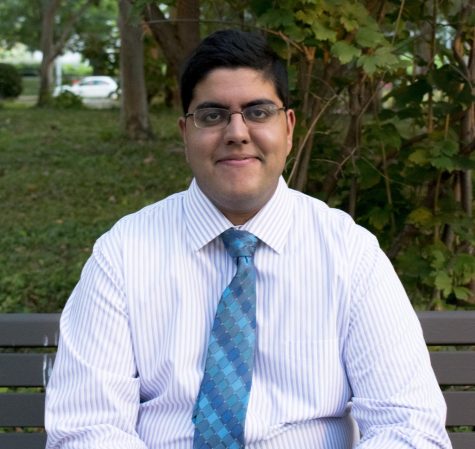Commission report examines first-year schedules, general education requirements
General Education Requirements (GERs) may be probed and changed in the future.
The Provost’s Commission on the Undergraduate Experience’s (CUE) first Progress Report raised concerns about how GERs add to the constraints of incoming student schedules and affect students that change schools. The report, released on Oct. 7, explained that the CUE had begun to explore university-wide GERs to reduce their burden and allow for academic discovery.
It also detailed an action plan for ongoing CUE work, which will culminate in a final proposal in the Spring of 2018. The CUE was formed in January 2016 with a two-year “charge” to create proposals to improve the student academic experience at Case Western Reserve University. It is made up of select faculty members from all the schools and various members of the administration.
“We felt it was very important to let the campus know what we have been thinking about, to put some ideas out there and get some reactions,” said Dr. Kimberly Emmons, associate professor of English and chair of the CUE. “…It is still in the early stages. It is still a draft.”
The CUE examined that the first SAGES class restricts many incoming students’ early pursuit of “personal and intellectual passions,” because required classes for their programs already dominate their schedules. Of the current first-year students, 37 percent are taking at least three courses of at least 100 students for their program. These classes are for students joining a biological sciences or engineering program or those pursuing pre-medicine. The report pointed out that these program requirements didn’t leave much room for electives.
The report also compared current and incoming-student demographics and graduation rates to those from 2001 which were gathered by a previous commission. Nishant Uppal, fourth-year student and student representative to the CUE, explained that CWRU has transformed from a regional to a national university, becoming a place for higher achieving and a more diverse student body. The acceptance rate nearly halved; the percentage point difference decreased by three-quarters between white and nonwhite students and halved between males and females.
“Our retention rate is just as poor,” said Uppal. “…We’ve gone to be a place that accepts more higher achieving students, we have a more diverse student population, yet we are only graduating four out of every five students. I think it’s important for CUE to consider ways that we can improve the graduation rate.”
The six-year graduation rate for students who enrolled in 2001 was 81.4 percent and for students who enrolled in 2010 was 82.1 percent.
The CUE has seen accounts of how students who changed their programs after the first semester had difficulty in “intellectual exploration” due to differences in GER requirements between schools. Emmons believes a shared experience across all schools and majors is important for students.
“The energy coming in is great, but by now in the semester there is a little bit of exhaustion,” said Emmons. “Is there a way we can alleviate that? Are there ways that we can help students achieve what they want to achieve and what we want them to achieve?”
A draft of the Philosophy of the Undergraduate Experience, a set of guidelines for the undergraduate experience, is now available. It and the report is available for feedback online. Emmons stressed the importance of feedback and welcomes students during her drop-in hours or scheduled personal meetings.
Based off the groundwork, five working groups whose focuses range from academics to student life will be created to develop various parts of the undergraduate experience. Students can join them by contacting Uppal, who will nominate two undergraduates to each working group. Faculty and staff members are also welcomed.
The CUE hopes to revise and finalize the guidelines by this December.

Kushagra Gupta is a cognitive science and biology student and is working towards a masters in medical physiology. He's served as The Observer’s The Director...

